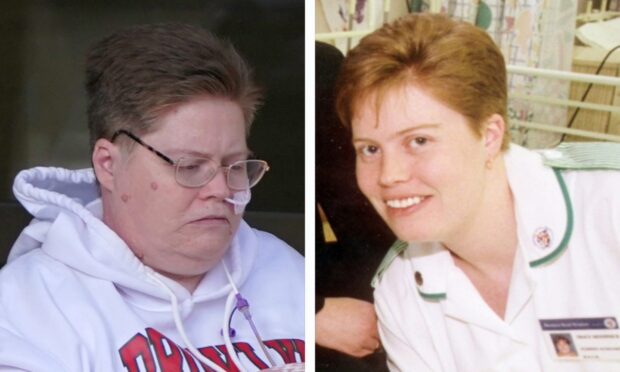A former auxiliary nurse who poisoned a vulnerable child with laxatives and saw him undergo unnecessary operations and treatment had her jail sentence cut today by appeal judges.
Tracy Menhinick was jailed for seven years earlier this year after she was found guilty of wilfully ill-treating the boy over three years to the danger of his life.
But lawyers acting for Menhinick, 52, challenged the sentence imposed on her at the Court of Appeal in Edinburgh claiming that it was “excessive”.
Lord Doherty, sitting with Lord Matthews, said: “We allow the appeal, quash the sentence of seven years’ imprisonment and substitute five years imprisonment.”
The appeal judges said that although the harm caused to the victim was high in their opinion the seven-year sentence was excessive.
The judges said they took into account that until the offence was committed Menhinick had led “a pro-social life”, although it was seriously affected by her own mental health problems.
They also noted that because of her physical and mental health issues confinement in prison would be more of a punishment for her.
Defence counsel Frances Connor said that because of the seriousness of the offence she did not make a submission that a custodial sentence was inappropriate.
But she argued that a lesser jail sentence could be imposed in the circumstances of the case which would allow Menhinick to return to the community and “try to re-establish some life for herself”.
She said: “It is a very rare offence, linked to compulsive behaviour that is little understood.”
Child left with severe scarring
Menhinick was convicted of wilfully ill-treating the child in a way likely to cause him unnecessary suffering or injury on various occasions over the course of three years from 2014 when the boy was aged between three and six at an address in Aberdeen, the city’s children’s hospital and elsewhere.
The court heard that after he was removed from her care he made rapid progress with his health and development, although he was left with severe scarring.
The trial judge, Lady Drummond, told Menhinick: “You deliberately ill-treated him and made him unwell. He became so unwell he was repeatedly admitted to hospital.”
“One of the doctors who gave evidence in this case described him as being emaciated on his last admission to hospital.”
“You had been an auxiliary nurse and knew what you were doing. You caused him to be in that state,” she said.
Crime ‘beyond understanding’
“He had to undergo intrusive and risky operations which you knew were unnecessary and that the need for them had been caused by you.”
“Why anybody would want to inflict such severe harm and suffering, endangering the life of a young child on multiple occasions over a period of years is beyond understanding,” said Lady Drummond.
In a psychiatrist’s opinion, she suffered from mental disorders and has a factitious disorder imposed on self and imposed on another.
The conditions were previously known as Munchausen and Munchausen by proxy – in the latter case a carer fabricates an illness in a person cared for.

